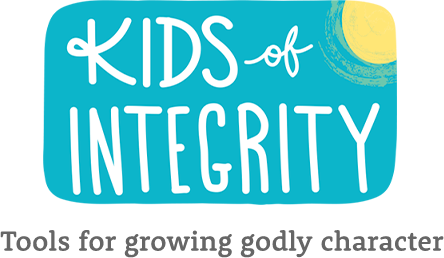Acceptance

Creative discipline
Few parents enjoy their God-given responsibility of disciplining their children, and even fewer children enjoy being on the receiving end. The Bible tells us to expect discipline to be uncomfortable, but also promises positive results. This section will provide you with innovative suggestions to use when correcting your children, to help them learn to practice acceptance.
For problems with excluding others
Biblical basis
1 John 4:20-21 “If anyone says, ‘I love God,’ yet hates his brother, he is a liar. For anyone who does not love his brother, whom he has seen, cannot love God, whom he has not seen. And He has given us this command: Whoever loves God must also love his brother.”
Suggested disciplinary action
Discuss the following questions with your child:
- Can you tell me how you are feeling?
- Can you tell me how ________ is feeling?
- Why don’t you want to play with ________?
- How can you show ________ Jesus’ love?
- Are you ready to play with ________?
If the answer is “Yes,” proceed to affirmation.
If “No,” then have your child take time away from playing, or ask him her to play on his/her own instead of with the group until he/she decides that everyone will be included.
Affirmation
Affirm your child by letting them know that you believe that they have God’s love in their heart.
Read or quote 1 John 4:12: “No one has ever seen God; but if we love one another, God lives in us and His love is made complete in us.”
Pray with your son or daughter, asking God to help them be willing to share His love by including others in their playtime.
For problems with judging others
When a child chooses to not accept or include another child, it is often because they have “judged” them. For example, your child may be thinking, “They will use the toys I want to use,” or “They won’t be any fun to play with,” or “They are different.” When your child has chosen to judge others, it is a good time to discuss the seriousness of their judgmental thoughts or actions.
Biblical basis
James 4:12 “There is only one Lawgiver and Judge, the One who is able to save and destroy. But you – who are you to judge your neighbor?”
Also Romans 2:1-3.
You may wish to use this paraphrase for younger children:
We have no right to judge others because we also do wrong. It is God’s job to judge others because He is the only one who is perfect. God says that if we judge others, He will judge us, too, because we are guilty of the same wrongdoing that others are.
Suggested disciplinary action
Discuss the following questions with your child:
- I’m guessing that you don’t want to play with ________. Is that true?
- What is it that ________ does that makes you feel this way?
- You are correct that it is wrong to ________.
- Have you ever ________? (Done something similar that was wrong.)
Emphasize that it is good to recognize sin as sin, but it is not our job to condemn the person because of their sin, because we, too, sin. It is wrong for us to judge someone for being ________ (whatever sin has been identified) because at some point in time we are all guilty of sin. (Gently remind your child of a time they have done what they are judging the other child for doing.) Excluding a friend from play because they have done something wrong is condemning them.
(Close by reminding your child that it is God’s job to judge others, not ours.) Even though others may do wrong at times, we need to continue to show love to them. Just as God accepts us as we are – and we are all sinful at times – we also need to accept others. Let’s pray for ________ that he/she will quit doing this.
- Are you ready to go and talk with ________ and then play with ________?
If the answer is “Yes,” proceed to affirmation.
If “No,” then have your child take time away from playing, or ask him/her to play on his/her own until he/she decides that he/she is willing to play with others, despite their shortcomings.
Affirmation
Pray and thank God for loving everyone, even though we are all sinful. Ask Him to help everyone in your family to do the same.
Read or quote Romans 15:7: “Accept one another, then, just as Christ accepted you, in order to bring praise to God.”
Challenge your child to bring praise to God by the way he/she treats others. Assure him/her that you believe that he/she can be accepting of the faults of others and, in doing so, will bring praise to God.
- Acceptance
- Adaptability
- Attentiveness
- Christmas
- Compassion
- Confidence
- Consideration
- Contentedness
- Cooperation
- Courage
- Courtesy
- Discernment
- Easter
- Faithfulness
- Forgiveness
- Generosity
- Gentleness
- Gratitude
- Harmony
- Honesty
- Humility
- Joy
- Kindness
- Obedience
- Patience
- Perseverance
- Respect
- Responsibility
- Reverence
- Righteousness
- Self-control
- Thanksgiving

